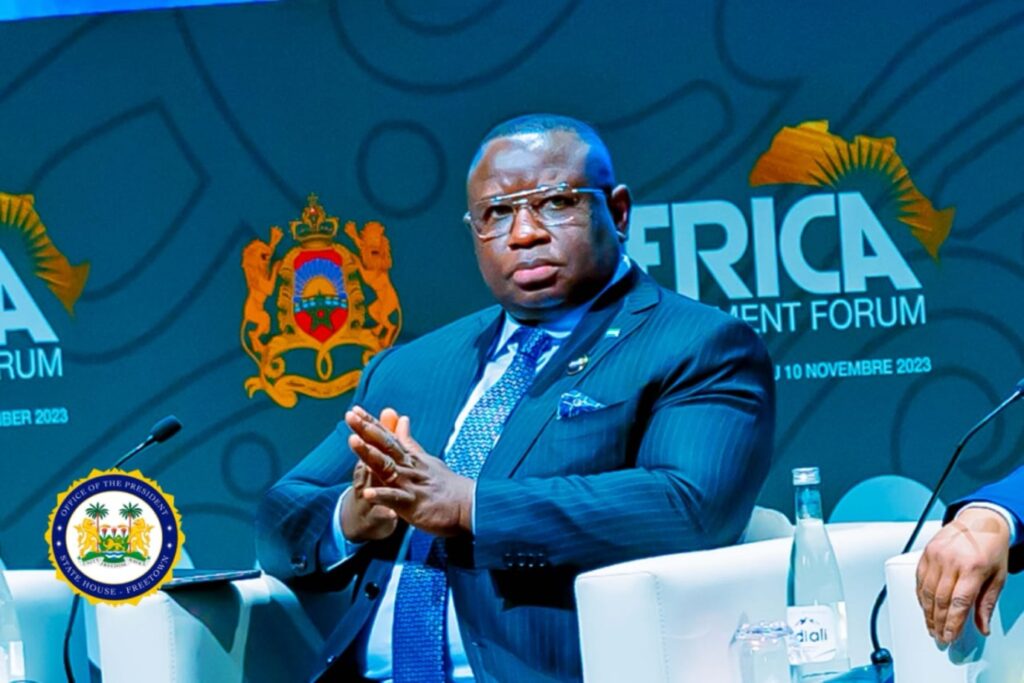His Excellency President Dr Julius Maada Bio has joined other Heads of State and Government on a Presidential Panel on the theme: ‘Unlocking Africa’s Value-Chains’ and spoke about the barriers to Africa’s economic transformation.
In his royal address on the opening of the Africa Investment Forum, His Majesty Mohammed VI, King of Morocco, said that Morocco had made infrastructural development a key priority, making the country a model of infrastructure on the continent. The North African country has 1.4 gigawatts of renewable energy and is proactively pursuing large-scale industrial development. President of the Africa Development Bank, AfDB, Dr. Akinwumi Adesina, delivered the inaugural address and told heads of state and heads of international financial institutions present that Africa and the Caribbean were linked by history, heritage and blood, and that they would rise together.
“The gathering is taking place at a time of rising geo-political tensions. African economies provide some of the best development opportunities. Africa has the largest source of renewable energy,” he stated, adding that the $20 billion desert-to-power project, which AfDB and others were exploring, would change the face of the continent. “What makes the Africa Investment Forum unique is that it is innovative and also 100% transactional,” he said.
In his contribution on the ‘barriers to Africa’s economic transformation’, President Julius Maada Bio told the panel, which comprised of President Azali Assoumani of Comoros, President Samia Suluhu Hassan of Tanzania, Prime Minister Mia Mottley of Barbados and Prime Minister Edouard Ngirente of Rwanda, that the obstacles people saw in Africa must be seen as opportunities. “These challenges and opportunities have been aptly captured under the African Union’s Agenda 2063, which, in my view, truly encapsulates the blueprint for Africa’s journey to irreversible progress.
“Africa’s huge infrastructure deficit or gap is a major bottleneck to Africa’s sustainable economic growth and development. Many of our countries need massive investments to improve electricity access, develop transport infrastructure (paved roads, port, rail and air transportation), improve access to piped water and adequate sewage systems and develop ICT.
“As well documented, many challenges are standing in the way of Africa’s potential and transformation. However, as an eternal optimist, I see opportunities where others see challenges. These opportunities must be fully exploited for Africa’s economic growth and sustainable transformation,” he said. He noted that the lack of economic diversification was prolific on the Continent, adding that natural resource-rich countries tended to lack diversification and could not, for the most part, sustain sudden or prolonged shocks in the market.
“To address over-reliance on natural resources, our Governments should focus on economic diversification and value addition of our natural resources before exporting for greater domestic revenue income.
“The African Continental Free Trade Area (AfCFTA) presents a major opportunity for African countries to bring 30 million people out of extreme poverty and to raise the incomes of 68 million others, who live on less than $5.50 per day,” he urged.
